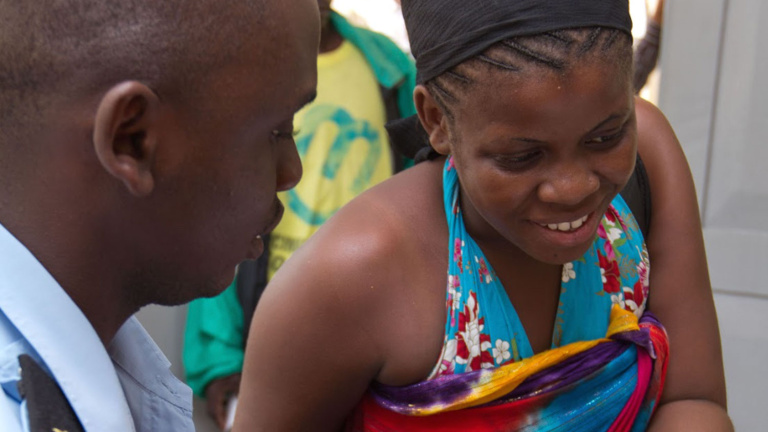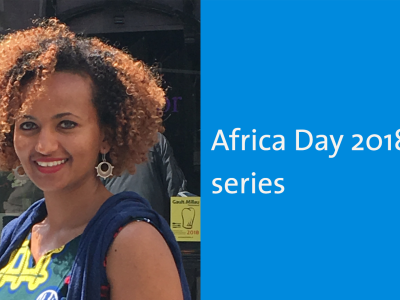
Migration is not an emergency
The EU should work to unlock its potential for sustainable development. Migration is becoming central in EU development policy. A host of measures have been announced and instruments set up to use development funds to address migration’s ‘root causes’. These bring the risk of an EU development cooperation increasingly driven by short-term and EU-centric political needs. What we need, instead, is an EU migration policy aligned with the historic commitments of the 2030 Agenda for Sustainable Development.
EU development cooperation hijacked?
Migration has become a central part of the EU’s development and foreign policy, with multiple measures announced at the highest level. In 2015, a new European Agenda on Migration was launched. The following year, the EU adopted the new Partnership Framework to speed up implementation of the Valletta Action Plan, which set several domains of cooperation between the EU and African partners. From the outset, it was clear that these agreements focused disproportionately on preventing and fighting irregular migration through border control, returns and readmission compacts. The Communication on Establishing a New Partnership clearly underlines how conditionality should be integrated into EU development policies, rewarding or punishing countries in line with their cooperation in managing migratory flows.
To address the so-called ‘root causes of migration’, to use the jargon in vogue, the development-migration nexus has evolved to embrace a dangerous paradigm, which could lead to the diversion of development aid to the management of migratory flows. I consider any tying of development cooperation to migration control to be disturbing. EU development cooperation, as stated in Art. 208 of the Treaty on the Functioning of the European Union, should address long-term global issues, particularly poverty eradication and sustainable economic growth. It should not serve short-sighted and EU-driven political needs, such as preventing migrants from reaching European shores. Moreover, research has shown that the assumption that more development aid will reduce immigration is flawed.
Are the new funding instruments genuine development tools?
To tackle the ‘migratory emergency situation’, the EU funding landscape has undergone a major transformation. New financial instruments have been established, most notably the EU emergency trust fund for stability and addressing the root causes of irregular migration and displaced persons in Africa. Framed as an emergency instrument and covering 26 African countries, it has now become the main financial instrument for EU political engagement with African partners in the field of migration, with most of its resources drawn from the European Development Fund.
Despite the trust fund’s potentials (more flexibility and political visibility, along with the possibility of pooling huge volumes of aid from different sources), this instrument lies outside the EU budget, giving the European Parliament a very limited role of scrutiny. Moreover, as the money pooled also comes from non-aid budgets which do not have to comply with DAC rules, there is a real risk of development funds being diverted to securitisation and border management activities aimed solely at curbing migratory flows.
A scrutiny working group has been set up within the European Parliament’s Committee on Development (DEVE), to establish a more institutionalised context for oversight of the new migration-related instruments affecting development aid policies and financing. In particular, it is of utmost importance to ensure that new funding choices are compatible with EU legal bases and principles, and that funds allocated from development policy budgetary instruments fulfil ODA criteria, without deviating from development objectives. Among the issues raised, I consider particularly worrisome the limited engagement of African countries and civil society in the design of the trust fund and the selection of projects.
An EU migration policy in line with the 2030 Agenda
Serious doubts can therefore be raised on the EU’s strategy to address migration, which has evolved fast in the last few years. Indeed, it seems driven by a securitisation approach, in stark contrast to the commitments made in the 2030 Agenda. Rather than pursuing sustainable development through facilitation of orderly, safe and responsible migration policy, sustainable development seems to be used as leverage for stemming migration. The politicisation of aid and the call to make development aid conditional on third countries’ commitments on migration is particularly troubling. We are setting up a do ut des regime, which could cost the EU its credibility as a global actor.
Moreover, by bending our external policies to conditionality on border management, we risk undermining relationships with African partners. This approach could weaken the EU’s soft power. In economic terms, the securitisation-driven obsession of EU governments with stemming migratory flows towards Europe could dramatically impact African economies in the medium and long term, as they also rely on intra-regional free movement. After all, migratory movements from Africa to Europe represent only a minor part of the overall flows within Africa.
Without global credibility and strong intercontinental partnerships, migration from Africa would constitute a much greater longer-term challenge. There can be no quick fixes. Any EU strategy should be properly elaborated in real cooperation with all relevant partners. Similarly, projects funded through ODA should respond to partner countries’ development needs, not donors’ political objectives. Considering development as a short-term solution to the challenge of migration is fundamentally flawed. It risks subordinating our development policy to short-term and security-driven objectives. Migration is an opportunity for both Europe and Africa, to be dealt with in cooperation and on the basis of true equality. On a more general note, we should delink EU development cooperation from stability and security programmes, which might serve development but do not represent appropriate use of ODA.
The politically-driven establishment of new funding instruments, allowing for a partial relabelling, reorganisation and reprioritisation of EU aid budgets towards migration control, raises important questions about the principles of effectiveness and ownership underlying EU development cooperation. It is important to keep track of the geographical allocation of aid, which must continue to be guided by development needs and not focus solely on countries invested by migration flows. We must not pass the bill to the poorest in the world.
The biggest gap in the EU’s migration agenda is the lack of any safe and legal channel. We need long-term solutions based on policy coherence for development and alignment of EU policies to the goals of the 2030 Agenda. The migration challenge requires forward-looking solutions that serve recipients’ needs, without side-lining genuine development aims and the principle of freedom of movement outside of our borders.
About the author
Elly Schlein is a member of the European Parliament (Group of the Progressive Alliance of Socialists and Democrats) and the EP’s Committee on Development (DEVE).
Read the full magazine issue


